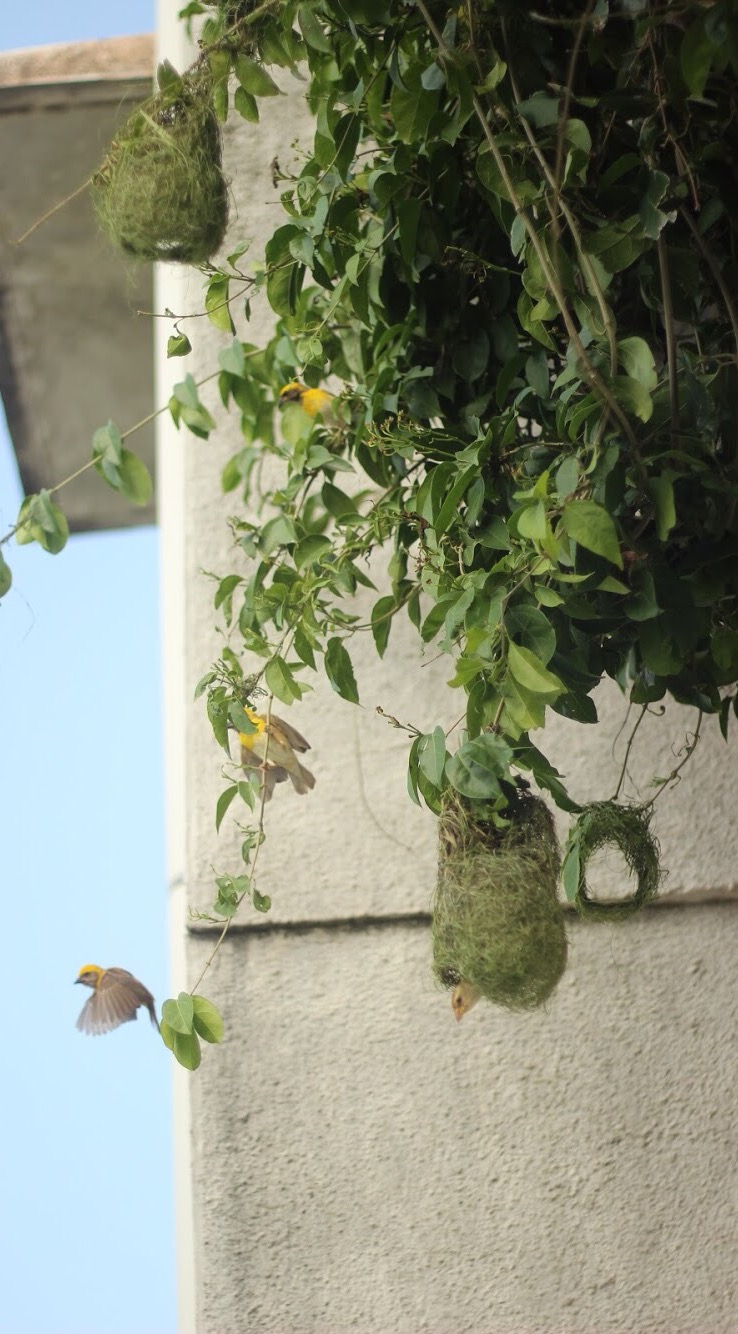There were nests in our balcony, built by little grey birds with yellow necks and blackheads. I would stare at them. Sometimes I planted my camera on the balcony to catch them in the act of making the nest. I overlooked the process with such vigilance that I could tell how much the building had furthered at the end of each day. When I visited from Pune after weeks, the progress made would take my breath away, each time. The shape of the nests would have changed and the number increased.
One day when I came back home, I met papa, mummy and headed for the balcony to convey my greetings. The nests were gone. Mummy had destroyed the nests because they had become a sort of domestic nuisance, that was explained but not heard for grief had taken over my senses. I yelled angry sentences at mummy before bolting to my room and crying in R’s arms. I did not know how to unhate mummy. I did not know what to do with the loss of the birds. I was not prepared to say goodbye, probably also unwilling.
I have not been able to look at the 18 gigabytes worth of video files in my hard disk of them. Papa came into my room to tell me that Sanju kaka had passed away. I sat in my chair and played with the words on my tongue. Passed away. Sanju. kaka. ka-ka. I toyed with the weight. Juggled the words; dropping it more than catching it.
Sanju kaka is no more.
Sanju kaka was one of the surrogate mothers who I had not asked for it, for three years when mummy was in the hospital. Three years of childhood are a life of their own. He was the big-mother-man who cooked, drove us to school if the auto ditched, and scolded if we left the door of the bathroom open while peeing. He also introduced me to “kharra”. I can still identify it from the distinct sweet and pungent smell. I believe some of my rotten bits of humor are his. He taught me to ride a bike when it was too early for me to ride a bike. I would scold “are you balancing the bike from the back? Don’t!” This man, preserved in motherhood through the distance of time, is dead.
I found papa still talking when I returned from the memory of collecting raw mangoes in a sheet while he threw them from the roof. His son – papa was telling me – had called asking for kaka’s family’s contact number. It makes me believe that papa was closer to him than blood could have got them. He was poor, papa said, “lived in a slum, actually worse, I wouldn’t want you to imagine. I am trying to send them some money for the funeral. It’s tomorrow. Do you want to come?” No, I tell him. I will go to the park behind the house. The black-headed birds live in bushes there now. They will fly away as I get close to them. And without the awkwardness of speech between us, I will wave them goodbye.
